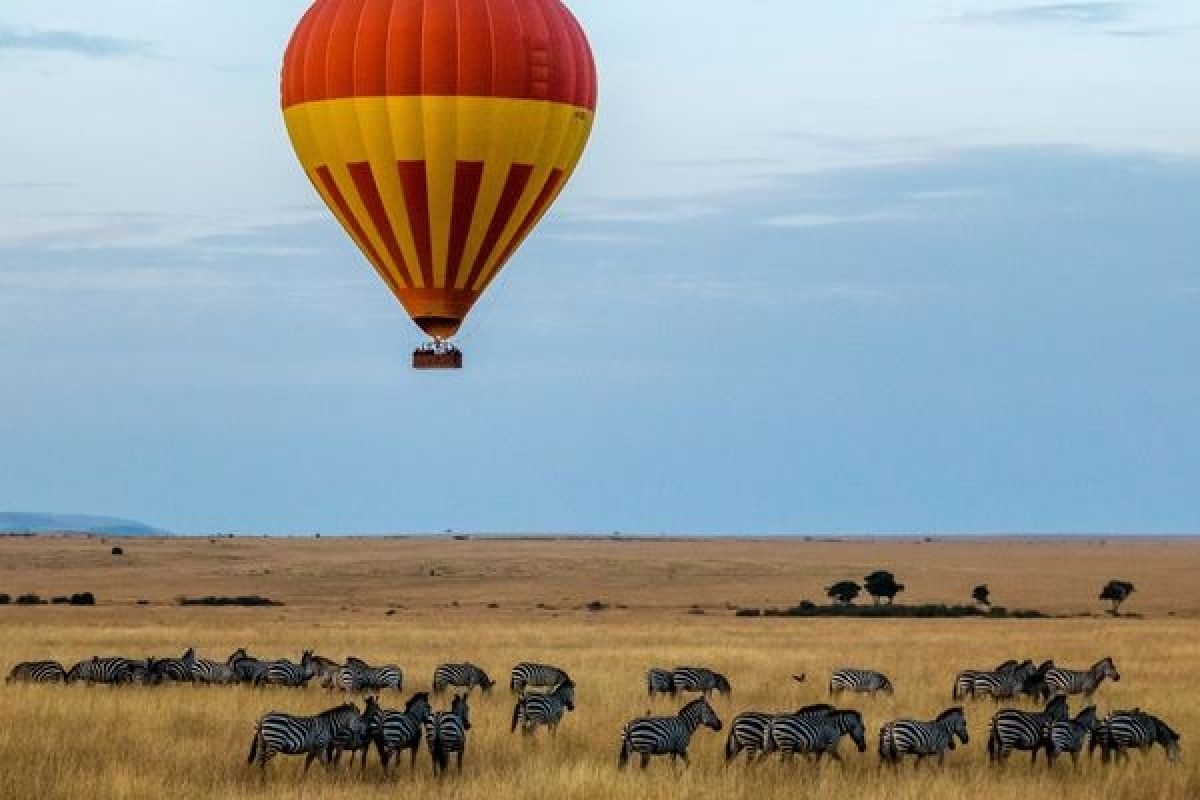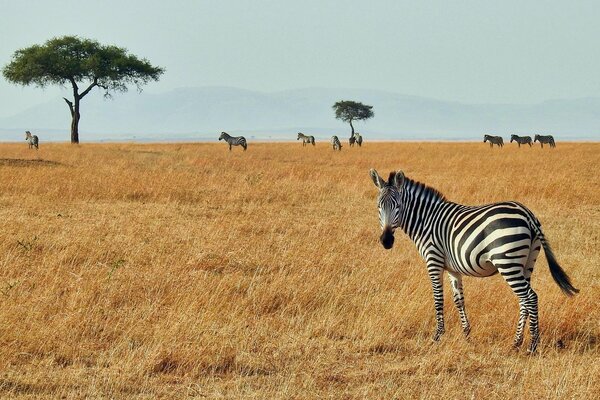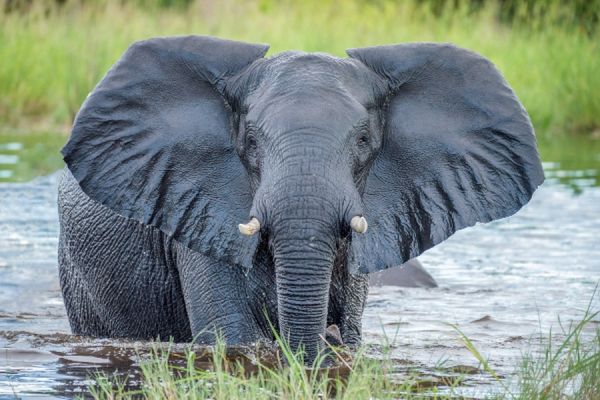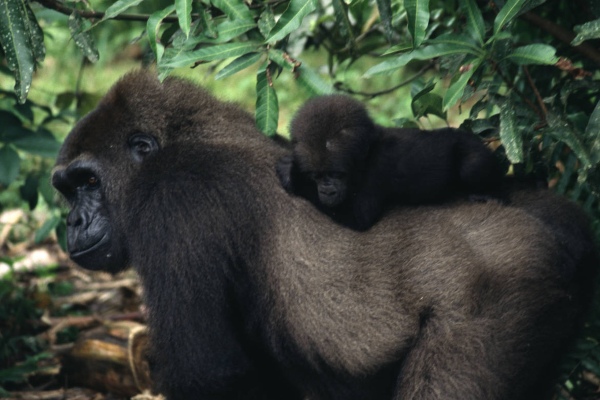Africa's Covid entry rules putting off visitors

As the rest of the world ditches tests and unscientific restrictions on the ‘unvaxxed’, travel writer Guy de la Bédoyère says Africa’s tourist industry will struggle to recover until it follows suit.
The curb on international travel shone a spotlight on how many people's livelihoods depend on the travel industry.
In countries like Kenya, more two million people rely on tourism for their survival.
The tourist sector is worth 10 per cent of Kenya's economic output, meaning any hit to tourist figures not only puts millions on the breadline, it also means there’s less money for schools, police, potholes and pensions too.
However, as the economic destruction caused by the lockdowns becomes apparent across the world, it seems African leaders remain more interested in promoting Covid theatre than allowing their ravaged tourism industries to recover.
While countries across Europe, the Middle East, Central America and the Caribbean drop restrictions entirely, African countries continue to enforce confusing – and expensive – entry requirements, especially on the so-called 'unvaccinated'.
The logic for the ongoing travel restrictions is not just stumping economists and holidaymakers alike. Even the World Health Organization (WHO) has questioned the rationale behind them now the virus in endemic.
As Mark Woolhouse, Professor of Epidemiology at Edinburgh University, says in his book The Year the World Went Mad, ‘travel restrictions are expected to have far less impact if infection is already present in both source and destination’.
In other words, if restrictions work, they only work if movement is prevented from a place where the virus is established to one where it is absent.
And, as we all know, that ship sailed a long time ago.

Zebras on the plains: Photo by Ron Dauphin, Unsplash.
African measures remain bewilderingly behind the times and continue to put people off travelling.
Some of it is pure theatre, and that includes variable rules on mask wearing and quarantine once you get there.
Such rules are huge dealbreakers for many would-be tourists travelling from Western countries that have long since ditched masks and isolation requirements.
The South African government conceded as much when it announced masks would no longer be mandatory.
Kenya also recently dropped its mask mandates, again making a holiday there much more attractive for would-be travellers.
But Africa’s pedantic testing rules still rule it out for many Westerners.
Africa’s leaders are particularly foxed by how to deal with the unvaccinated, even though many other countries – especially places like Britain – have given up on vaccine apartheid and allow both the vaxxed and unvaxxed to travel without any restrictions at all.
South Africa, for example, with its massively important tourist industry, still requires unvaccinated travellers to have a PCR test within 72 hours ‘of the date of travel’.
Whatever your views about vaccinations, the fact is that getting that PCR test done and the results back within that timeframe is extremely stressful and enough to put some people off travelling.
It’s the same for Zambia and Gambia, but with the added complication that in Gambia the unvaccinated must also have a rapid diagnostic test on arrival, despite having rolled up with a negative PCR test result.
You also face the threat of having to be quarantined at your own expense should you test positive.

An elephant in Botswana's famous Okavango Delta.
Botswana too goes out its way to make things unnecessarily complicated if you're unjabbed: you might have to have yet another PCR test on arrival – at your own expense.
If Lesotho’s on your list, you need a PCR test to enter, jabbed or not, and another one to move on to South Africa. Swaziland – or eSwatini, as it is now known – requires a vaccine certificate or a 72-hour PCR test for the unjabbed.
Mozambique requires the same of the jabbed too.
Namibia doesn’t impose a test on arrival, but instead requires the unvaccinated’s pre-departure test to be verified on the Trusted Travel Platform.
Zimbabwe allows entry by vaccination certificate or a PCR test but that has to have been taken in the 48 hours before travel.
And if you’re lucky enough to wade through that then you have to have a ‘negative Covid-19 certificate’ issued in the 48 hours before leaving Zimbabwe too, whether you're vaccinated or not.
I recently travelled to Florida and talked to many Americans – the reason they were most likely to cite for not travelling overseas was the US government’s insistence on a negative test (PCR or lateral flow) taken in the 24 hours of the day prior to the day of travel. In Zimbabwe’s case, the rules are round the other way – it’s the country of departure imposing the rule – but the effect is the same: you might not be able to get home. It’s surely a deal-breaker for most people.
Uganda is fairly straightforward. No vaccine certificate is needed, but the jabbed and unjabbed alike must have a negative PCR test result in the 72 hours before departure.
Tanzania makes things a tad more complicated. Armed with a vaccine certificate, the jabbed can waltz in and holiday immediately.
The unjabbed have to present with the usual PCR test taken in the 72 hours before departure, but if they come from countries on the Tanzanian hit list they have to have a lateral flow test on arrival ($10), with a positive result meaning a mandatory PCR test and then self-isolation if positive.
You can find a list of those countries, which at present include the US and the UK, here (scroll down to List of Countries for Mandatory RDT).
Kenya is much the same except that the unjabbed generally not allowed in unless they belong to one of the few exemption categories.
Those who are let in are hit with a $30 bill for the lateral flow test on arrival, if told they must have one. A positive result means a compulsory PCR for $50. The vaccinated have to upload their certificate before travel.
Malawi is somewhat more paranoid. The vaccinated also need a PCR test taken within 72 hours of departure, with the threat of another potential test being ordered on arrival.
If that happens, not only do you have to pay for the privilege but you’re confined to the airport or testing centre until the results come through. I don’t know about you, but I wouldn’t even book the flight, let alone board the plane.
As for the unvaccinated, they’re not allowed into Malawi even if they can prove they aren't infected.
On the face of it, Rwanda looks easy. No vaccine certificates required, though you’re ‘encouraged’ to be jabbed. That’s the simple bit. Everyone has to have a PCR test within 72 hours of departure, certificate uploaded, and then you are compulsorily tested on arrival with a PCR and/or a lateral flow (it’s not clear) at a cost to you of $65. A cynic might suggest that the system is based more on raking in foreign currency than anything else.
Gabon allows in the certificated jabbed and the PCR-tested unjabbed (within the usual 72 hours of travel), but jabbed and unjabbed have to book a quarantine hotel for five days regardless (from this website) as well as cough up CFA20,000 (about $33) for the privilege.

A female gorilla with her young at Gabon's Ivindo National Park.
Ethiopia is slightly more flexible than most. The jabbed are waved in on the strength of proof of vaccination. There doesn’t seem to be a need to upload this first. The unjabbed can have a PCR test taken in the 72 hours before departure or a lateral flow in the 24 hours before flying.
That does at least have the potential to avoid the stress of not getting a PCR result back in time. The Seychelles has the same policy, but the vaccinated have to show proof of their jabs when applying for the Health Travel Authorization before travel.
Mauritius has its own variant scheme. The jabbed can enter with ease. The unjabbed don’t need a test to travel which sounds good until you read the small print. They have to have a compulsory PCR test on arrival, then quarantine for a week before having a lateral flow test.
If you’re planning on going to Mauritius and you aren’t vaccinated, you’d better bring a few books and some Sudoku puzzles.
What about those popular North African holiday destinations?
Morocco seems hell-bent on keeping people out. Even the jabbed have to roll up with a negative PCR test taken within 48 hours of departure, as well as a completed health form, and face the threat of a random lateral flow test on arrival, and even a potential random PCR test 48 hours after entry.
Having fought your way in, you need a valid vaccine pass to leave. The unjabbed are saved from this headache, as they aren’t allowed in at all.
Egypt’s a bit simpler. There’s no pre-departure test or quarantine for the jabbed, though you might be tested after arrival if your country of origin is considered a risk.
The unjabbed have to present the usual negative PCR test taken within 72 hours of travel. But those flying to the Red Sea resorts can opt for a $30 PCR test on arrival, though whether you’d want to risk testing positive at that stage is a moot point.
Tunisia is freely open to the certificated jabbed, but the unjabbed have to have a PCR test taken within 48 hours of entry (a crucial distinction) or a lateral flow within 24 hours of entry.
The stakes for the whole continent of Africa are enormous. Before the pandemic even took hold, South African tourism was in decline.
There were nearly 12 percent fewer arrivals in 2019 than in 2018. The US was one of the biggest sources of tourist money (the third most important, with just under half the numbers arriving from the UK) but to date they haven't come back.
By last summer Kenya’s tourist industry was on the point of being wiped out.
By early 2022, things were looking up for Kenya, which had seen tourism creep back up to just over 40 per cent of pre-Covid levels, but the growth was from locals, not foreigners.
Instability in the Middle East had already wiped-out US tourism in Egypt.
Covid saw 13 million visitors in 2019 drop to less than four million in 2020, but there are signs that rules aside the sector is starting to recover but since that boost was fuelled in part by Russian tourists, it might now suffer another serious reversal.
Crucially, though, any recovery is going to be limited while travellers know the rules can change at the drop of a hat.
I’ve made several long-haul flights in the last year and every one of them was a nail-biting experience thanks to the fact that you don’t know if you may be denied entry.
The stress is phenomenal. This is turning some travellers away in their droves.
Whether African nations can really afford to carry on with such a chaotic array of different rules, is the multi-billion-dollar question.
Guy is a broadcaster, historian and travel writer who regularly appears in the travel section of Britain’s Daily Telegraph. His new book Pharaohs of the Sun, a history of Egypt's 18th Dynasty, will be published in July.



